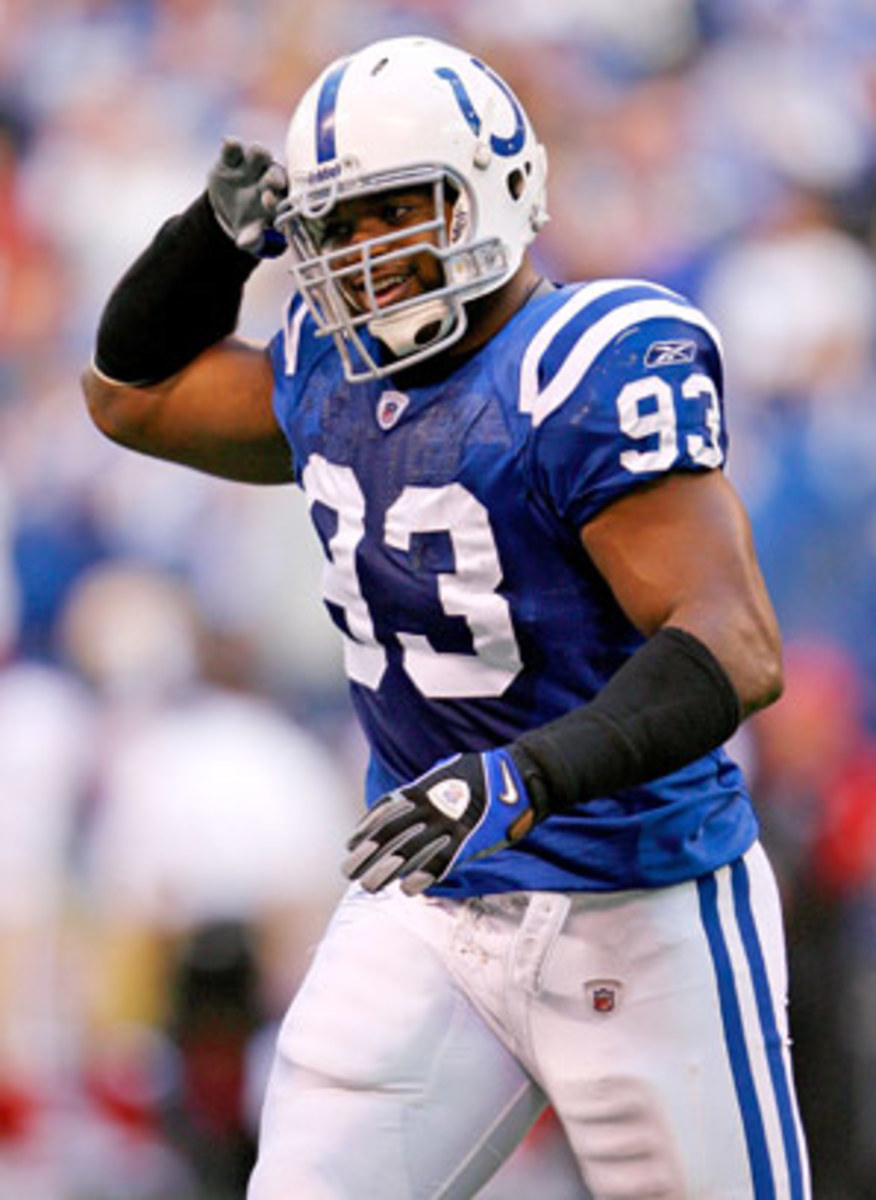
Role reversal: more athletes, past and present, entering media
Dwight Freeney interviewed me last month. He asked me about Peyton Manning vs. Tom Brady, Bob Sanders, and who I liked in Major League Baseball this year.
I am not making this up.
More and more, athletes are getting into the media business. Most guys do it when their playing days are over. In 2011 some of them go to the dark side while they are still playing. No doubt they are getting ready for a work stoppage or the next career after retirement from the playing field.
That's how I found myself getting peppered by questions from Dwight Freeney on national television.
I was in Southern California for an appearance as a guest on Jim Rome is Burning. It's was President's Day and Jim Rome had the day off. I was a little surprised when I heard that Freeney was sitting in for Jim.
So there we were, live on ESPN, Freeney and me. A couple of sports guys. One of the greatest defensive ends of his generation. And me.
I never thought stuff like this was going to happen when I got into the sportswriting game. There was a clear separation. We were newspaper guys and they were players. There was little crossover. We didn't have a lot of opportunities to appear on television or radio. And players didn't entertain the idea of joining the media.
It's different now. Sportswriters are brands. Programmers need content providers and we sometimes pass for "experts.'' And occasionally, a player or ex-player is the one asking the questions. It's a little weird, for sure.
One of the highlights of my career was getting a call from Rick Barry's radio booker. The guy wanted to know if I could go on the air with Barry to answer a few questions about the Celtics.
Are you kidding me? Rick Barry was one of the greatest NBA players of all time. What could I possibly tell him that he doesn't already know?
It didn't matter. Even if you are Rick Barry, you need "guests.''
Even if they are doofus newspaper slobs like me.
So I went on the radio and answered basketball questions from Barry. "Well, Rick, it gets rough out there on the court, you know?''
Pretty hilarious if you ask me.
This reverse dynamic goes on all the time in my hometown of Boston. Former Patriots quarterback Scott Zolak is a sports talk radio co-host. Former Red Sox infielder Lou Merloni is a radio and television host.
It creates some strange situations. Zolak will ask me what I think of the Jets defensive schemes. Merloni will ask me about the Red Sox batting order. Both of them are infinitely better equipped to answer the questions, but we are required to fill our roles, skate our wings.
Celtics legend Cedric Maxwell is a commentator on the C's flagship radio station. Maxwell did not speak to the media for one entire season when I covered the Celtics, but now he occasionally asks me a question.
Tommy Heinsohn? He was NBA Rookie of the Year when Bill Russell was a rookie (1956-57). He's scored 37 points and grabbed 23 rebounds in Game 7 of the Finals in 1957. He won eight championships as a player and two as coach of the Celtics. But in his job as television commentator, he has at times been required to ask writers what they think about the Celtics. Big joke, no?
Hall of Famer Dennis Eckersley has asked me about the Red Sox bullpen. I've sat in a studio smiling, side-by-side with Jim Rice, who once threatened to break me into pieces. Fred Smerles. Steve DeOssie. Ted Johnson. Jerry Remy. All media guys. All guys I interviewed, or tried to interview when they were players. Guys I waited out, hoping for crumbs. Now their job forces them occasionally to ask a sportswriter a question. It's gotta hurt. They know and we know they know more than us. They already know the answer. It's strictly show biz.
Which is what it was with Dwight Freeney and me. Two guys on the set, talking sports.
Dwight introduced me to his viewers, then asked me about Bob Sanders, who had been let go by the Colts that day. I mumbled a few words, then turned the tables and asked Dwight Freeney about his former teammate.
Why waste time with me talking about somebody Dwight played with for so many years?
Then Dwight asked the Manning/Brady question.
Again, I uttered a few feeble words, before putting the universe back in order,
I said something like, "I don't know, Dwight, you tell me -- You've spent your whole career on the same team with Manning, trying to kill Tom Brady. How would you compare them?''
No spin moves. No speed rush. Dwight was diplomatic. He was cordial. He was a perfect television host.





